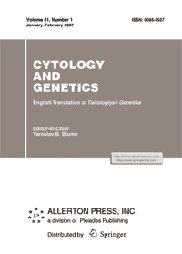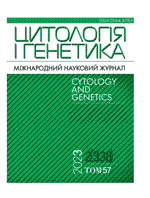Superoxide dismutase (SOD) activity was investigated in leaves of transgenic canola plants which expressed heterologous genes of different origin, namely 1) herbicide resistance genes (bar and simultaneously bar and epsps); 2) DesC desaturase gene (desC) of cyanobacterium Synechococcus vulcanus; 3) human interferon α2b gene (huIFN-α2b); 4) esxA::fbpBΔTMD fused gene, encoding ESAT-6 and Ag85b Mycobacterium tuberculosis proteins, inducing immune response against tuberculosis; 5) cyp11A1 gene of cytochrome P450SCC from bovine adrenal cortex mitochondria. Introduction of herbicide resistance genes as well as desaturase gene of cyanobacterium and mycobacterium’s genes did not change leaf SOD activity. At the same time it was shown that cyp11A1 and huIFN-α2b canola have increased leaf SOD activity up 58 and 33 %, respectively, compared with control ones in non-stress conditions. It may be a prerequisite for improved resistance of these plants to the stressors of different origin.
Keywords: Brassica napus, cyp11A1, desC, epsps, esxA::fbpBΔTMD, huIFN-α2b, SOD.
Ключевые слова: Brassica napus, cyp11A1, desC, epsps, esxA::fbpBΔTMD, huIFN-α2b, СОД

